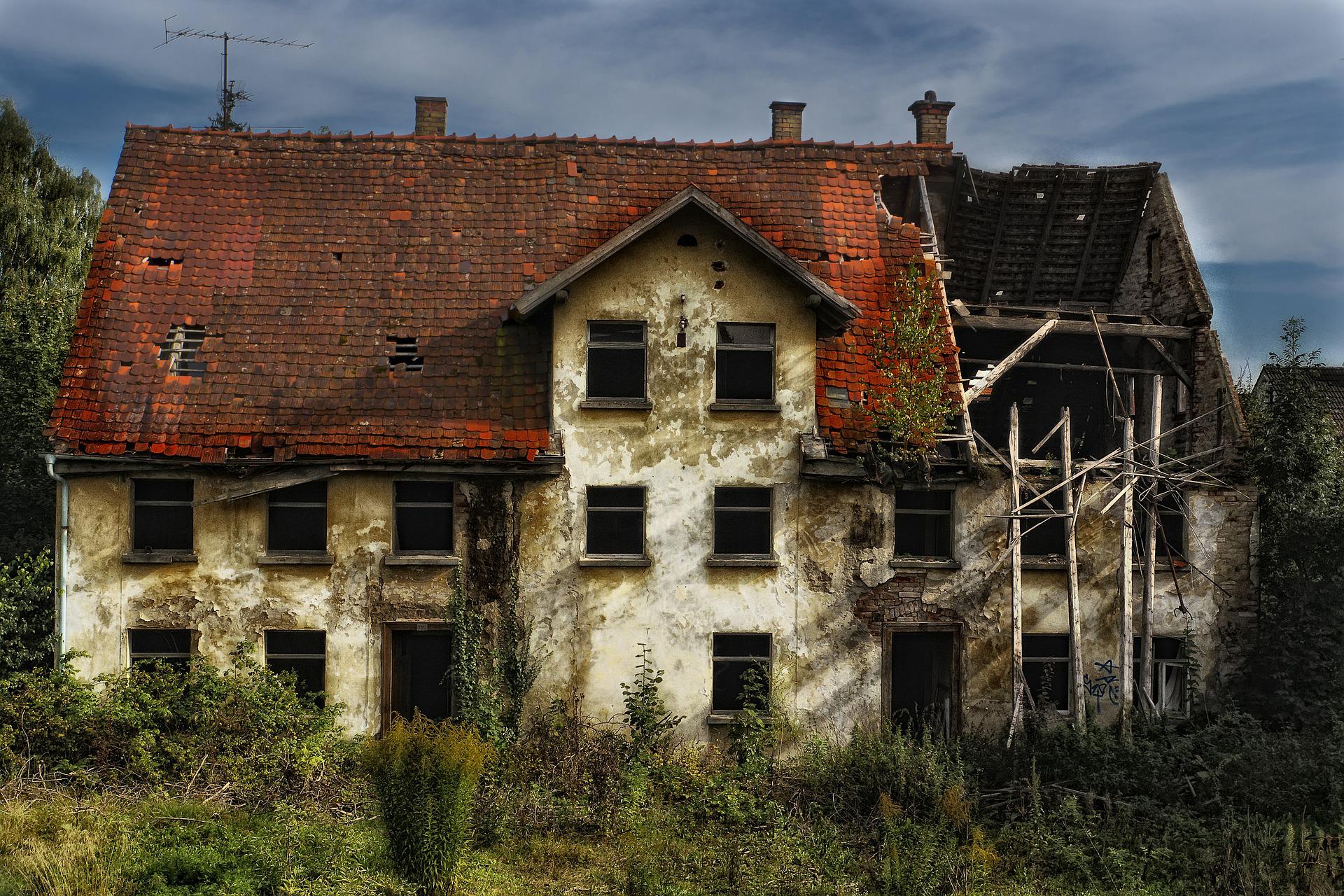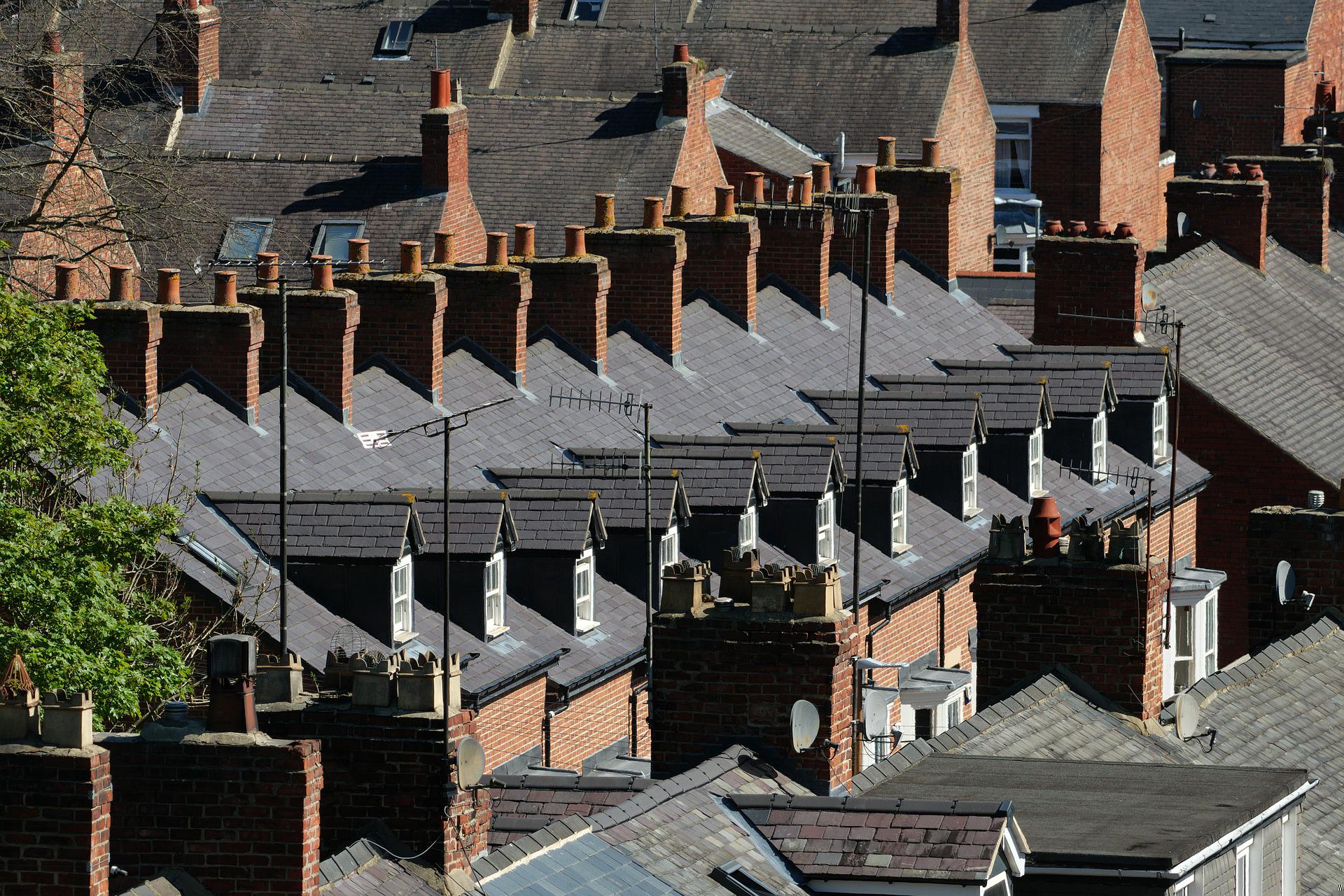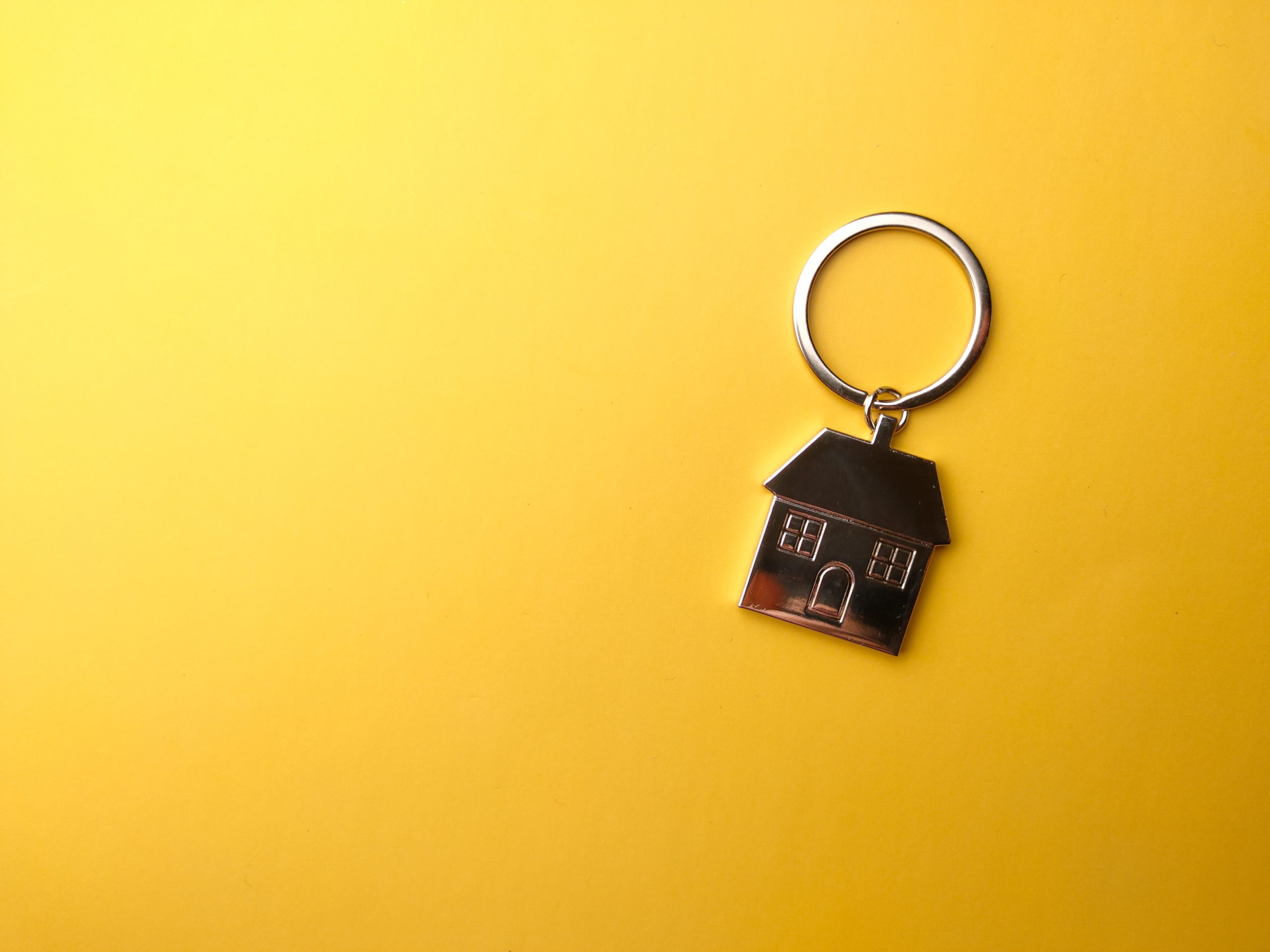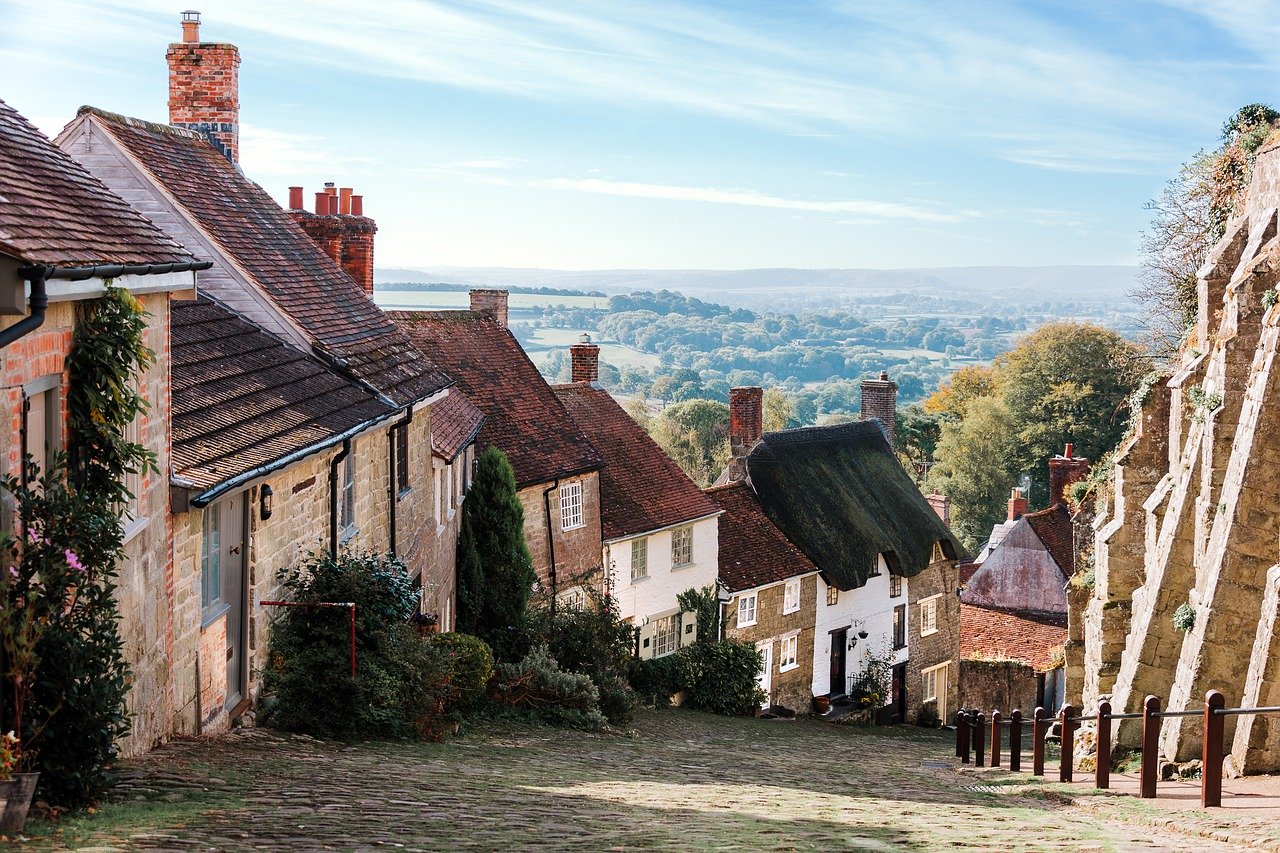Derelict houses are surprisingly common in the UK. With recent figures stating that there are 238,306 homes in England classed as a long-term, empty property, many of these would be considered derelict.
But what is a derelict property? How does a house become derelict – and is it possible to place a derelict property up for sale?
There are lots of nuances around this complicated subject. In the blog below, we have provided an in-depth look at derelict properties, including whether you are able to sell them.
What classifies as a derelict property?
As of August 2022, there is no responsibility on home owners to maintain their property to a particular standard. You cannot be forced to paint your outside walls or mow your lawn – which can frustrate some neighbours, who feel that a ‘shabby-looking’ property decreases the value of their house, too.
A property is considered derelict when it is uninhabitable and some of the following characteristics applies:
- Broken windows or doors
- Holes in the roof
- No one leaves or enters the property
- The house is boarded up
- Front and back gardens are significantly overgrown
If a house is reported as being derelict, the local council is able to contact the owner and request that they make the property safe/habitable. For example, if there are vermin reported in the derelict property, it would be considered in the interest of the local residents’ safety that this is dealt with.
How does a property become derelict?
Many houses become derelict when the property owner moves out, after realising that there are structural issues with the house which makes it unsafe to live in. They may also be unable or unwilling to afford any costly repairs required on the house.
A property may also become derelict if the existing tenants move out, and the landlord is unable to find someone new to move in. While it will be in their best interest to keep the house in good condition, external circumstances may distract the landlord. Examples of this could include foreclosures, bankruptcies, unforeseen deaths, or hostile divorce processes.
The risks of derelict properties
Many derelict properties are structurally unsafe and therefore pose a risk to nearby residents, in case parts of the property collapse, an overgrown tree in the garden falls over, or the guttering spills onto a neighbour’s land.
Furthermore, once the owner leaves a property and it becomes derelict, it may become vulnerable to criminal activities. For example, squatters may choose to live there. Once again, a situation like this (once reported) will usually result in local government intervention, as it poses a threat to other residents in the neighbourhood, as well as making the street an overall undesirable place.
What options are available when selling a derelict property?
When you own a derelict property, it does not mean you are out of options. There are still lots of things you can do to sell your derelict house – including the following:
- Sell your property as it is
- Complete renovations on the house before selling
- Sell your house at an auction
- Sell your property to a cash house buyer
When you sell your property as it is, you need to accept that you will receive a reduced price for the house. Property developers who specialise in taking over derelict houses may be willing to pay you for it – but don’t expect a hefty price.
If you choose to sell your house in its current condition, you should perhaps consider using a “virtual renovation” tool which allows prospective buyers to see the potential of your house.
Your second option when selling a derelict property is to complete renovations on the house before selling. It is up to you to decide which renovations are cost-effective to make and which ones are not – but overall, lots of minor improvements can make a significant difference. This might include:
- Mowing the lawn and landscaping
- Calling pest control
- Fixing leaking pipes
- Covering holes in the walls or roof
- Replacing broken windows or doors
If you can afford to complete these renovations, then your house may turn out looking ‘good as new’. If you can’t, then one of the other three options is perhaps best for you.
Your third option is to sell your property at an auction. Although this is not a popular option, as you are unlikely to get a good fee for your house, it can potentially be a quick way to offload your property, without too much stress.
Finally, you may wish to sell your property to a cash house buyer like WeBuyAnyHome. This is a very popular option for people selling derelict houses because it enables a quick, stress-free transaction which gets a derelict property ‘out of your hair’. It also enables you to save costs on an estate agent’s commission or by hiring a solicitor.
Sell your derelict property now
Do you have a derelict property for sale but are struggling to find a buyer? Selling to a cash house buyer like WeBuyAnyHome offers the perfect solution. We will guarantee you a quick transaction which means that the derelict property is no longer your problem.
We can also complete this deal in 7 days so you can move on with your life.
Furthermore, for a more overarching look at selling your property, read our complete guide on this topic here.
Contact us today to sell your derelict property.


















